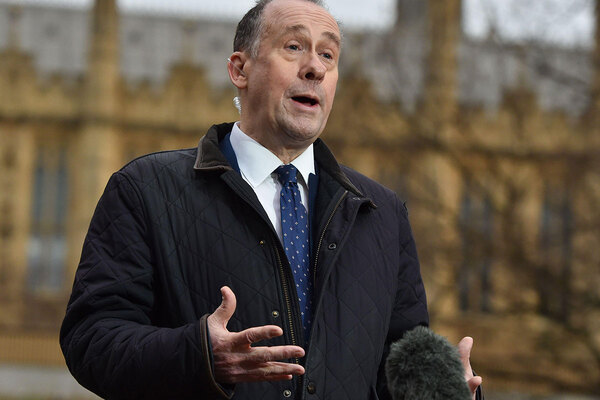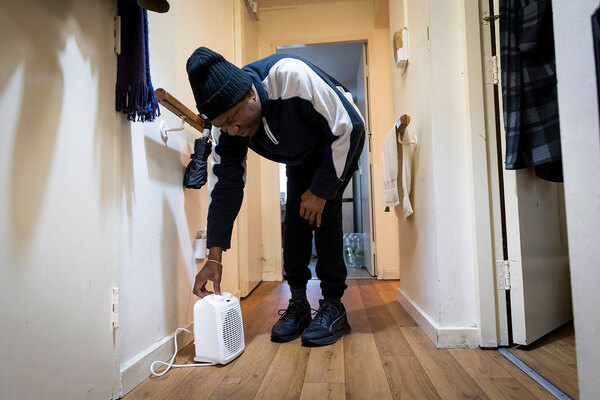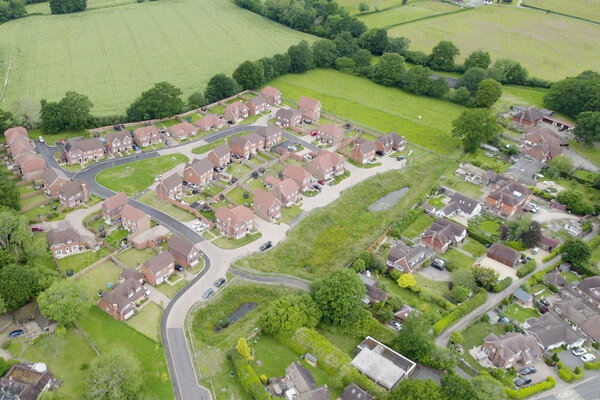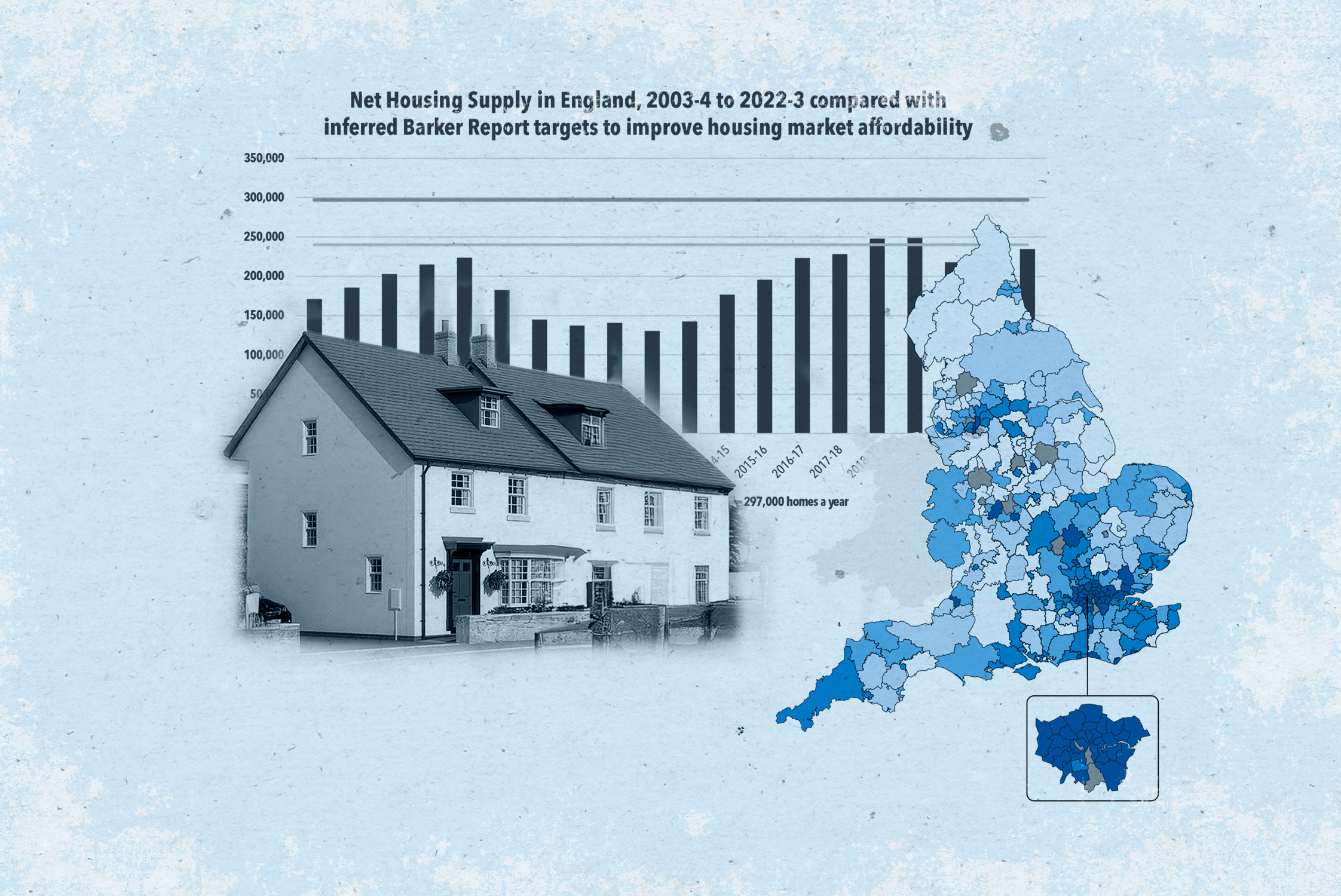You are viewing 1 of your 1 free articles
Heat network regulation – is the social housing sector ready?
Landlords with existing communal heating systems will need to get up to speed on the proposed new regime, write Chris Paul and Hannah Giebus from the energy and sustainability team at law firm Trowers & Hamlins
Significant changes to the heat market are on the horizon, with regulation due to be introduced in 2025. Both district and communal heat networks will be caught within the scope of the regulations – ranging from single buildings with a centralised heating plant, to city-wide heat networks serving thousands of customers.
Social landlords must act now to ensure they are prepared for the new regulatory responsibilities.
In November, regulator Ofgem and the Department for Energy Security and Net Zero (DESNZ) published a joint consultation on consumer protections for heat networks. This provides further detail on the proposed regime and is likely to be the final chance for stakeholders to provide feedback on the detailed proposals.
Ofgem also published a separate consultation on the authorisation regime and regulatory oversight, including the draft authorisation conditions that will apply to regulated entities. This will be of particular interest to landlords with existing communal heating systems, who will need to get up to speed on the new regulatory regime.
Under the proposals, both “operation” and “supply” will become regulated activities. The “operator” is the entity that controls the transfer of thermal energy on that network – either through ownership of the asset or with decision-making power to invest and direct repairs and maintenance.
The “supplier” is the entity with a contract with customers for the supply of heating, cooling or hot water, including where a landlord recovers heat costs through service charges or as part of rent.
In most cases, the operator and supplier will be the building owner or landlord. The consultation acknowledges that authorised persons may subcontract activities, but regulatory responsibility cannot be delegated unless the subcontracted party has “substantial control over network assets or supply agreements”.
This may work for schemes where an energy service company is appointed under a concession arrangement, but is unlikely to apply to outsourced services like metering, billing or operation/maintenance.
“Given the diversity in size, customer base and network characteristics, Ofgem is proposing to distinguish between large, small and not-for-profit heat networks”
The consultation highlights several areas of overlap with existing sector regulation, including the role of the Regulator of Social Housing. For customer complaints, the Energy Ombudsman and Housing Ombudsman will need to work together closely to ensure disputes are resolved.
Local authorities and registered providers will also be excluded from Ofgem’s financial monitoring and step-in requirements, where they are subject to existing sectoral regulation.
Given the diversity in size, customer base and network characteristics, Ofgem is proposing to distinguish between large, small and not-for-profit heat networks. For example, not-for-profit networks (such as those operated by not-for-profit registered providers) will be required to meet overall performance standards, but be exempt from obligations to make compensation payments to customers for failure to meet those standards.
The DESNZ is seeking views on “unbundling” heat charges from other service charges, to address poor consumer outcomes where heat supply is recovered through rent or service charge. Existing legislation (particularly the Landlord and Tenant Act 1985) conflicts with Ofgem’s proposals around billing transparency, dealing with non-payment and limiting back-billing to 12 months. To address this issue, Ofgem is proposing that heat consumption should be billed separately to other service charges.
An interim exemption period is proposed for social housing providers, to allow the transition from the current 18-month rule. While this transition may be challenging for some landlords, back-billing heat charges is always difficult, irrespective of the period.
Heat suppliers will be required to provide a separate bill for individual heat consumption so that customers are protected by rules around billing transparency, and certain prescribed information must be included in heat supply contracts (or in the lease or tenancy agreement).
“The consultation proposes disconnection as a remedy for non-payment (overriding eviction rights under existing landlord and tenant legislation), but with a ban for certain vulnerable groups”
Data from the 2022 Heat Network Consumer and Operator Survey identified that 40% of customers do not currently receive a separate heating and hot-water bill. That means a significant number of “suppliers” will need to change the way heat is billed.
The consultation proposes disconnection as a remedy for non-payment (overriding eviction rights under existing landlord and tenant legislation), but with a ban for certain vulnerable groups. This is likely to affect social housing providers with higher numbers of protected consumers, and the DESNZ is seeking views on how to mitigate the impact of unrecoverable debt.
So, how can you prepare? All landlords need to get to grips with the new regulatory responsibilities and the risk of non-compliance, which may include fixed penalties.
Existing sites with communal or district heat networks should be identified. Consider existing billing arrangements, particularly where the cost of heat is recovered as rent or service charge. Tenancy agreements and leases need to have sufficient flexibility to accommodate Ofgem’s transparency requirements and/or allow for separate heat supply contracts.
To help organisations engage with the consultations, Ofgem and the DESNZ are running a series of consultation webinars over the next few months. These consultations close on 31 January 2024 and stakeholders are encouraged to highlight any sector-specific challenges in this short opportunity to respond.
Chris Paul, partner and Hannah Giebus, associate, energy and sustainability team at Trowers & Hamlins
Sign up for our asset management newsletter
Already have an account? Click here to manage your newsletters
Sign up to the Warm and Safe Homes Summit 2025
Join more than 500 sector leaders responsible for retrofitting and improving the quality of homes – spanning asset management, building safety, sustainability, tenant engagement, procurement, governance and compliance.
The Warm and Safe Homes Summit (previously called the Retrofit and Strategic Asset Management Summit) offers a crucial opportunity for you to build collaborations and partnerships, driving progress toward healthy, safe and energy-efficient homes for tenants and residents.













